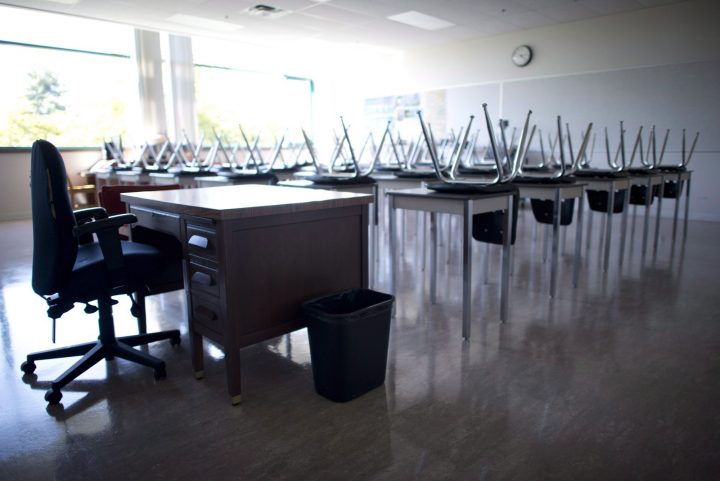The Thames Valley District School Board (TVDSB) will be moving forward with a “do no harm” philosophy around student assessments and grades as the novel coronavirus pandemic continues to shutter schools.

TVDSB director of education Mark Fisher announced the new policy Tuesday on The Afternoon Show with Jess Brady on Global News Radio 980 CFPL.
“It’s gone out in the last couple of days. We’re going to send some more broad messaging over the next few days just to clarify that because there’s been lots of questions,” Fisher said.
“That’s why I wanted to take this opportunity to speak to your audience and share that information.”
According to Fisher, whatever marks or grades a student had as of March 13 — the last day of regular classes before March Break and the start of provincial closures due to COVID-19 — will be the “lowest possible grade” that they could receive for the school year.
“Everything that you do between now and the end of June will be a great opportunity for you to increase your standing,” Fisher said.
“We’re committed to protecting our students’ well-being and our staff’s well-being and we’re going to continue learning moving forward. We’ve got this and we’ll continue to serve the staff and students of Thames Valley District School Board.”
The provincial order to close schools due to the pandemic was initially set to lift April 6, but has since been extended to at least May 4.

Questions about COVID-19? Here are some things you need to know:
Health officials caution against all international travel. Returning travellers are legally obligated to self-isolate for 14 days, beginning March 26, in case they develop symptoms and to prevent spreading the virus to others. Some provinces and territories have also implemented additional recommendations or enforcement measures to ensure those returning to the area self-isolate.
Symptoms can include fever, cough and difficulty breathing — very similar to a cold or flu. Some people can develop a more severe illness. People most at risk of this include older adults and people with severe chronic medical conditions like heart, lung or kidney disease. If you develop symptoms, contact public health authorities.
To prevent the virus from spreading, experts recommend frequent handwashing and coughing into your sleeve. They also recommend minimizing contact with others, staying home as much as possible and maintaining a distance of two metres from other people if you go out.
For full COVID-19 coverage from Global News, click here.
- Naloxone-resistant street drug linked to 9 deaths in Eastern Canada seized in Alberta
- ‘She gets to be 10’: Ontario child’s heart donated to girl the same age
- Buzz kill? Gen Z less interested in coffee than older Canadians, survey shows
- Bird flu risk to humans an ‘enormous concern,’ WHO says. Here’s what to know









Comments